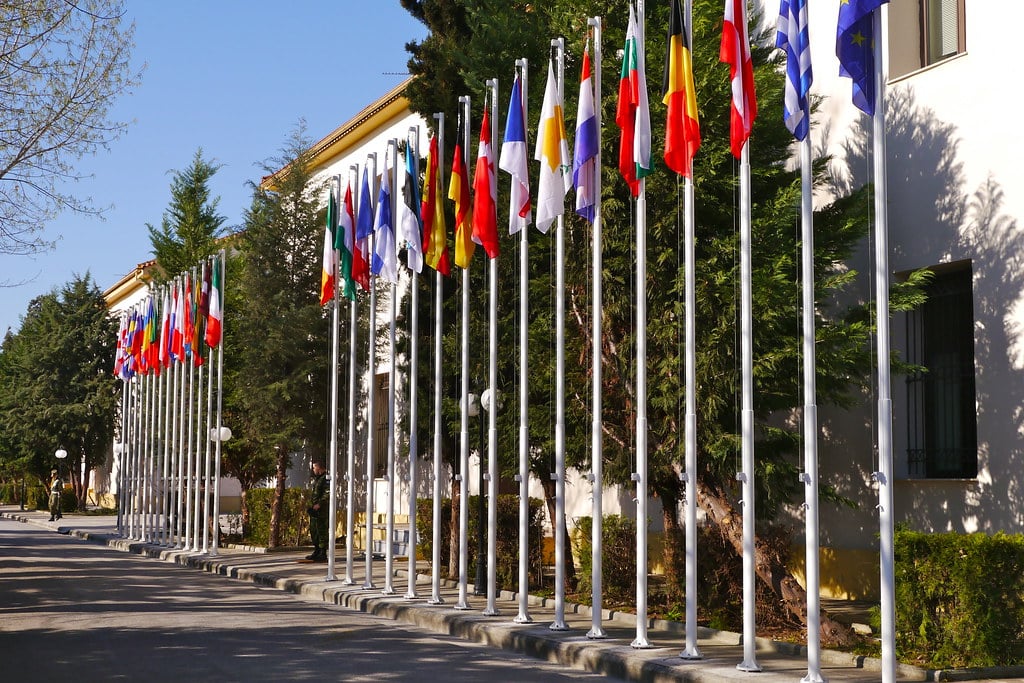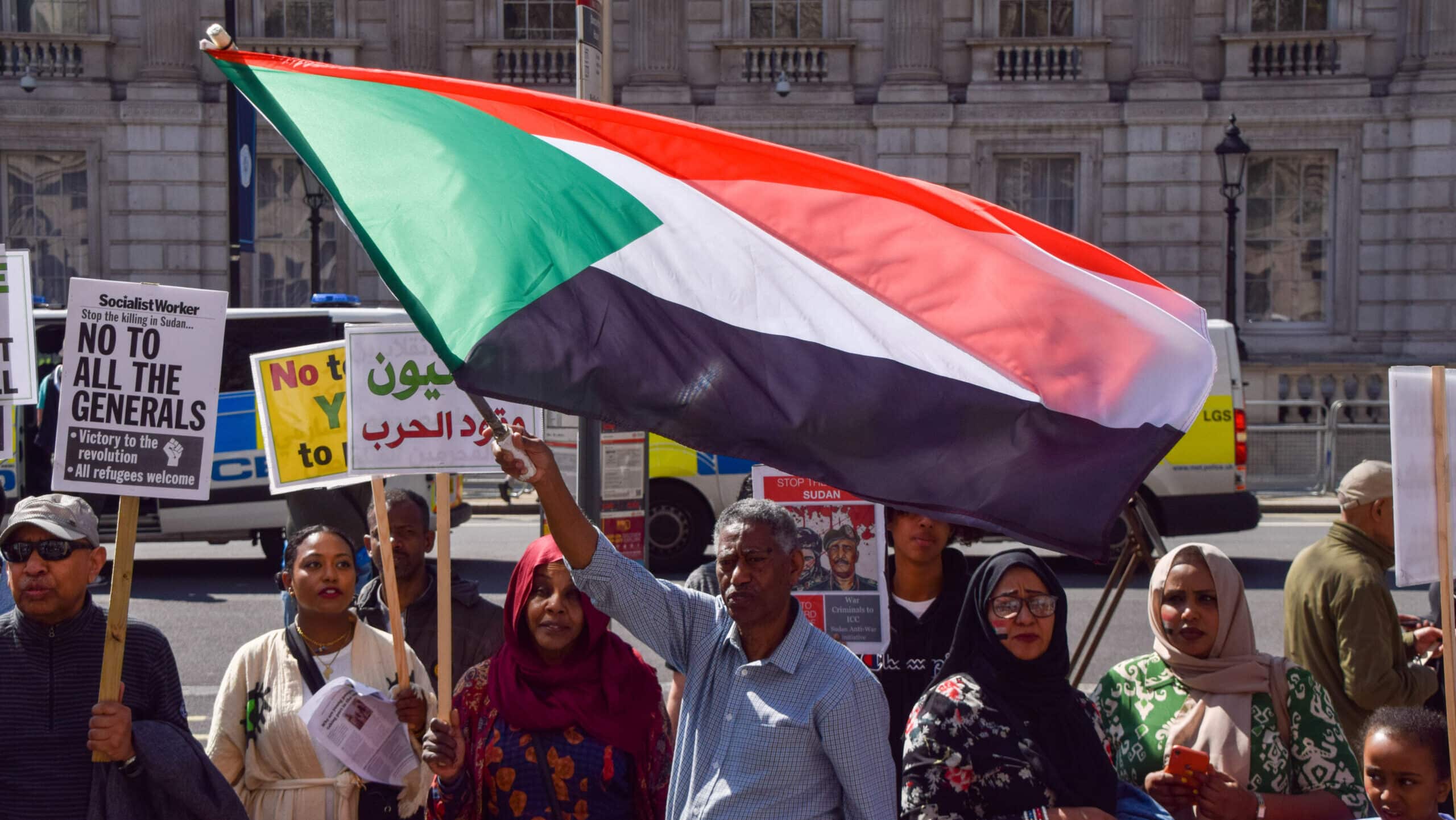Photo: Georgian flags in the capital Tbilisi. Source.
Thousands of demonstrators took to the streets of the Georgian capital Tbilisi in recent days to protest against the reintroduction of a notorious 'foreign agents' law. The law was proposed on 3 April by Georgia's ruling Georgian Dream (GD) party and is a slightly modified version of a law that caused a stir back in March 2023. It was eventually repealed after international criticism and protests in the country. The Georgian opposition, the European Union (EU) and civil rights groups have spoken out strongly against the law which bears clear similarities to a similar law in Russia. The reintroduction of the law comes after many other incidents casting doubt on whether GD will lead Georgia to its long-awaited accession to the EU.
The law
Officially, the law is about 'transparency of foreign influence'. The only notable change from last year's proposal is the replacement of the term 'foreign agent' with 'organisation pursuing the interests of a foreign power'. However, the purpose of the law remains unchanged. It aims to scrutinise individuals, media and civil society organisations that get more than 20% of their funding from abroad. Failure to comply with financial reporting requirements, even for minimal violations, can lead to heavy fines and imprisonment for up to five years.
Critics have drawn parallels between the Georgian law and a similar law passed in 2012 in Russia was adopted. The term 'foreign agent' is also a favourite of the Russian government. It recalls the label 'enemy of the people' that was widely used in Soviet times to discredit the opposition. Even now, the law is being used by the Russian government as a tool to silence and exclude critical voices about the state. Whereas initially the law applied only to NGOs, it was gradually expanded and now applies to any organisation or individual allegedly critical of the government.
According to GD, NGOs are being used by foreign actors and the main opposition United National Movement (UNM) party to selectively discredit the judiciary. They accuse them also of spreading LGBTI+ propaganda, 'pseudoliberal ideology' and attacking the legitimacy of the Georgian Orthodox Church. Given GD's grip on the judiciary, which is already used to prosecute political opponents, opposition fears seem justified. The new law could increase GD's political power and further sideline the political opposition.
EU accession
Amid the geopolitical turbulence caused by the Russian invasion of Ukraine and the accelerated accession process of Moldova and Ukraine, Georgia has also applied for EU membership in 2022. The country was granted by the EU twelve key priorities on political freedom, anti-corruption, de-oligarchisation and the protection of human rights and civil society. To become a member, Georgia had to make significant progress in these areas.
It therefore came as a surprise when Georgia was granted candidate status in late 2023. The country had taken sufficient action on only three of the 12 priorities and its security policy was only to a limited extent aligned to that of the EU. Nevertheless, the EU's decision in Georgia was met with great enthusiasm greeted. People took to the streets en masse to celebrate what was considered a historic moment for the country.
Several surveys have shown that there is broad support among the Georgian population for EU accession, at least some 75% are in favour. While it is clear that there is a strong desire for membership, the reasons for wanting it seem diffuse. Some Georgians look to the EU for the protection of human rights, liberal values and a strong rule of law. Others see the economic benefits and security offered by the EU as the main reasons for joining. One need not exclude the other, but the perception of what membership means is crucial to the efforts made to achieve it.
Strategic positioning Georgian dream
GD has consistently expressed its support for EU membership and has watched for rapprochement with the European Union and NATO over the past decade. The association treaty with the EU in 2016 and the establishment of a NATO base in the country were seen as clear signs that the country is seeking rapprochement with the West and moving away from its big neighbour Russia. The party is therefore trying to take credit for giving Georgia candidate status, even though it has done little to meet EU conditions.
Aware that being pro-EU is necessary to be successful in Georgian politics, GD constantly proclaims support for the EU. However, this contrasts sharply with both the warm relations of the party with Russia as its conservative identity politics. The rhetoric in some areas is so suspiciously similar to Russian propaganda that it might as well be straight out of Putin's playbook. The recent proposal for a 'anti-LGBTQ' law shows its lack of commitment to the liberal values so crucial for EU accession. With traditionalist rhetoric around 'family values' and antagonism to the LGBTQ+ community, GD appears to be seeking the support of conservative voters ahead of the 2024 general election.
While GD may see EU membership in terms of economic benefits, its policies and rhetoric increasingly go against EU values. The EU's decision to grant Georgia candidate status can thus be seen as risky, as it may legitimise a party that openly undermines EU values. While the EU can make good use of a strategic ally in the Caucasus with a pro-EU population, it must remain vigilant not to strengthen the ambitions of the ruling party, which could push the country away from the EU.





